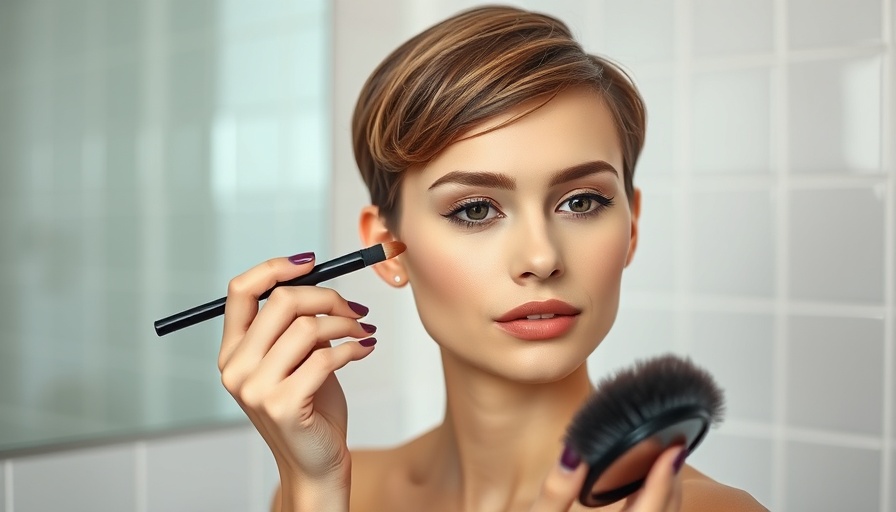
Why Are Thinning Eyebrows and Baldness on the Rise?
In recent years, a noticeable increase in hair loss, particularly thinning eyebrows among women and baldness among men, has garnered significant attention. The causes of these conditions are not solely tied to genetic predisposition, as common misconceptions suggest. Instead, emerging research indicates a profound link between nutrient deficiencies and hair health, raising alarm over an underappreciated factor that could be impacting many.
The Role of Nutrient Deficiencies
According to a report from Harvard Health, dietary habits play a crucial role in maintaining hair health. Deficiencies in certain vitamins and minerals, including Vitamin D, iron, and biotin, have been identified as common contributors to hair loss. These nutrients are essential for various bodily functions, including the development of hair follicles and the overall cellular turnover within the body.
Moreover, health experts noted that the increase in hair loss cases correlates with our modern lifestyles, characterized by poor dietary choices and the prevalence of hair-stripping chemicals in personal care products. For instance, Vitamin D is essential not only for bone health but also for the survival of hair follicles. Therefore, low levels of this vitamin might increase susceptibility to hair thinning.
What Recent Studies Reveal
A comprehensive review published in the *Journal of Dermatology* highlights the intricate relationship between diet and hair loss. It asserts that micronutrients support the normal functioning of hair follicles and that any deficiency might represent a modifiable risk factor for hair loss. Both studies indicate that while stress factors and genetics certainly play roles, nutritional deficiencies offer a potent pathway for intervention and treatment.
For instance, iron deficiency is often found to be more prevalent among women, leading to a notable increase in hair loss and thinning due to the important role iron plays in transporting oxygen to hair follicles. Similar findings link Vitamin E and biotin to promoting hair strength and growth, linking these nutrients not just to preventing hair loss but to improving existing hair conditions.
Practical Insights for Prevention
Considering the findings about nutrient deficiencies, health experts recommend dietary adjustments focusing on a balanced intake of vitamins. Foods rich in nutritional value, such as leafy greens, nuts, seeds, and proteins, can help restore the necessary nutrient balance that supports healthy hair growth. Nonetheless, it's crucial to test for specific deficiencies before jumping into supplementation. Over-supplementing can lead to adverse effects, underscoring the importance of moderation.
Women especially are encouraged to include foods rich in biotin, iron, and Vitamin D in their diets, such as eggs, fish, nuts, and fortified cereals. Exploring natural remedies, like using essential oils known to nourish hair, can also promote healthier hair growth as part of a holistic approach.
How Emotional Well-Being Plays Into Hair Health
It’s also instructive to address the emotional and mental ramifications of hair loss. Experiencing thinning hair or baldness can have a profound impact on self-esteem and mental health, especially among women regarding eyebrows and other visible areas. As reported by various health organizations, crafting a supportive environment—whether through therapy or support groups—can help individuals navigate the emotional complexities of hair loss.
Call to Action: Embrace Healthier Habits
In light of the increasing awareness surrounding hair health and its ties to nutrient intake, it is high time to take charge of your wellbeing. If you've experienced hair loss or thinning, initiate a dialogue with a health professional who can guide you on the necessary dietary changes or tests for deficiencies. Take steps towards a healthier lifestyle, not just for the sake of your hair, but for your overall health and wellness.
 Add Row
Add Row  Add Element
Add Element 



 Add Row
Add Row  Add
Add 


Write A Comment